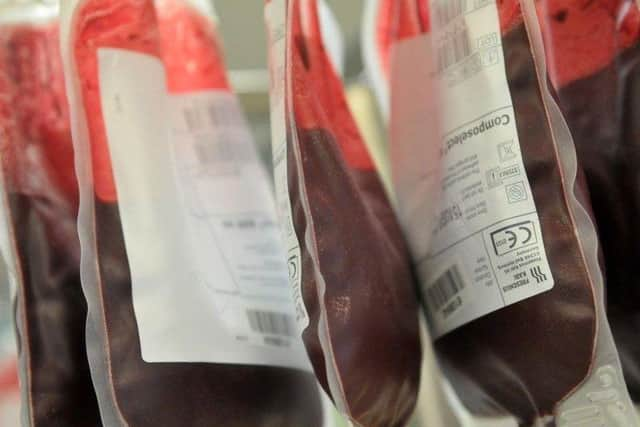Infected blood inquiry: Scot tells of 'horror' that he could have 'caused death to whole family'
Bruce Norval, who was born in Scotland and has lived in Edinburgh and Inverness, was infected with Hepatitis C aged 23 after being treated with contaminated blood products for his bleeding disorder.
The former nursing student, now in his mid-50s, criticised the public health response in the late 20th century, saying many medical practitioners viewed Hepatitis B and C “as if it’s a side-effect in isolation restricted to the patient”.
Advertisement
Hide AdAdvertisement
Hide AdReferencing medical research from the late 1970s, Mr Norval said: “We’re not talking about a side-effect here, we’re talking about a virus in a living being.


“Someone who is sent back out into the community, unknowingly, to have sex with the person they love, to interact with their families, play football, maybe cut themselves in the workplace.
“One of the biggest horrors I feel as an individual is the thought I may have hurt someone I don’t know, that I might have passed the virus on to someone else without meaning to.
“My daughter was drilled not to, but simple things like women stealing their dad’s razors to shave their legs and armpits – if that razor had been used before, the chances of transferring Hep B or C is quite high.
“We’re not talking about saving my life or saving my pain, we’re talking about turning me into potentially a vehicle that could cause death to a whole family.
“The way this is being talked about is as if we lived in isolation but we didn’t.
“We went to schools, to college, we had lovers, we had trysts from time to time, people had normal lives.”
The father-of-two also recounted his sense of “betrayal and anger” in how he was told of his diagnosis at St Thomas’ Hospital in London in 1990 while his wife Christine was pregnant with their first child.
Advertisement
Hide AdAdvertisement
Hide AdHe said: “I was on my way in for twice-weekly blood tests. On the way in I bumped into a senior registrar… I said, ‘That blood test you took off me, did you ever get the results?’
“He said, ‘Oh yeah, you’re positive’ and just kind of walked off. He said, ‘You might get lymphoma, you might get liver cancer, liver decompensation, but it probably won’t happen’."
The inquiry, which began in September 2018, will investigate how as many as 30,000 people across the UK and 3,000 in Scotland were infected with HIV and hepatitis in the 1970s and ‘80s after being given contaminated blood imported from the US.
Many patients were haemophiliacs, along with others who received blood transfusions.
Around 2,400 people died in what is recognised as one of the worst treatment scandals in the history of the NHS.
Bill Wright, who is chair of Haemophilia Scotland, will give evidence on Thursday as part of a panel alongside representatives from Haemophilia Northern Ireland and Haemophilia Wales.
A message from the Editor:
Thank you for reading this article. We're more reliant on your support than ever as the shift in consumer habits brought about by coronavirus impacts our advertisers.
If you haven't already, please consider supporting our trusted, fact-checked journalism by taking out a digital subscription.
Comments
Want to join the conversation? Please or to comment on this article.
